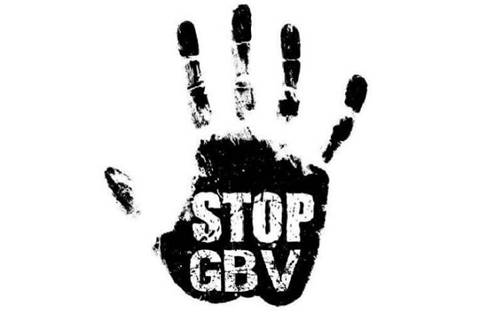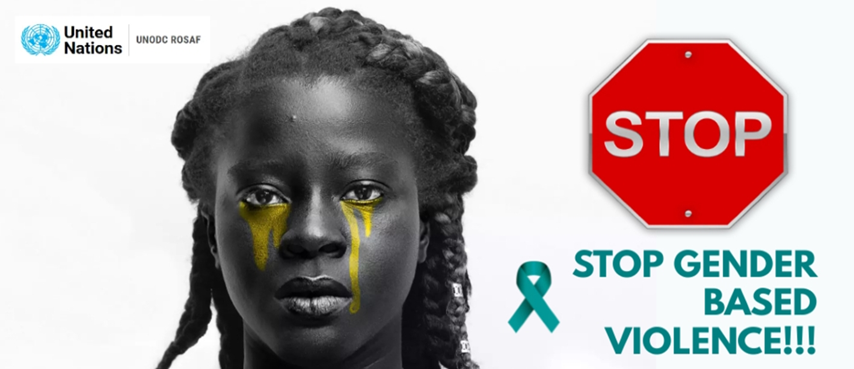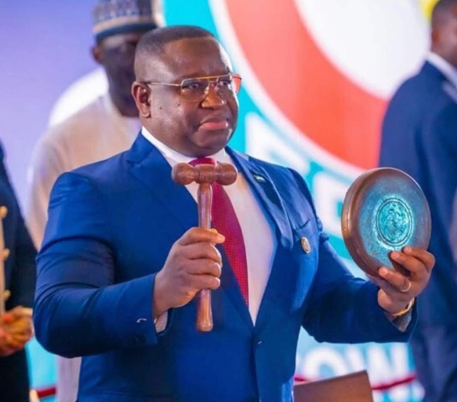By Mackie M. Jalloh
Gender‑based violence (GBV) remains one of the most pressing human rights issues of our time. Around the world, women and girls face physical, sexual, emotional, and economic abuse—whether at home, in public, or online. Addressing GBV “at all levels”—individual, community, institutional, and global—is both a moral imperative and a strategic necessity. This article explores why and how the international community must move beyond fragmentation to a comprehensive, multi‑pronged approach. It uses Sierra Leone’s recent advances—and the leadership of its First Lady—to highlight tools, challenges, and innovations in ending GBV. In doing so, it positions local actions within global frameworks and explores ideas for eliminating violence everywhere.

The Global and Regional Context
The United Nations‑EU Spotlight Initiative has become the world’s largest targeted effort to end violence against women and girls. Launched in 2017 with €500 million in seed funding, it now supports more than 25 countries across regions. It works by strengthening legal frameworks, bolstering prosecutions, funding survivor services, and promoting civil society leadership. Since 2019, the initiative has contributed to doubling conviction rates in 12 countries and mobilizing nearly 190 million USD to civil society actors—helping millions access support and steering nearly 3.5 million young people and 2 million men and boys toward new norms of non‑violence and equality.
In Africa, coalitions like Solidarity for African Women’s Rights (SOAWR) coordinate legal advocacy across 33 countries to enforce protocols such as the Maputo Protocol. SOAWR has helped 43 African Union states ratify and domesticate the treaties that protect women’s rights, foster accountability, and challenge harmful practices.
Sierra Leone: A Case Study in Progress and Pitfalls
Sierra Leone exemplifies both the challenges and potential of GBV reform:
• According to UN data, about 62% of women aged 15–49 report experiencing spousal physical, sexual, or emotional violence, with 61% of ever‑married women specifically reporting abuse by intimate partners.
• Female genital mutilation (FGM) affects 86% of women and girls, one of the highest rates globally. Meanwhile, child marriage is nearly 30% among women aged 20–24.
• Despite strong laws like the Domestic Violence Act (2007) and the Sexual Offences Act (2012), enforcement remains weak: survivors must pay for medical reports, legal representation is unaffordable for many, and social stigma often dissuades reporting
• Surveys show that while GBV is seen as the most crucial women’s‑rights issue in the country, most Sierra Leoneans consider domestic violence a private family matter, and nearly half believe survivors who speak up will face public shaming.
However, Sierra Leone has also made strides:
• In response to a high‑profile case in 2019, the president declared a rape emergency, forming specialized courts and one‑stop centers to support survivors.
• In June 2024, the country criminalized child marriage through the Prohibition of Child Marriage Act, imposing prison terms of up to 15 years for offenders; activists continue to push for a complete ban on FGM after an ECOWAS court ruled it torture in July 2025.
Role of Sierra Leone’s First Lady: Leading from the Front
First Lady Fatima Maada Bio has emerged as a vocal and visible advocate in Sierra Leone’s fight against GBV. Under her leadership:
• The government launched “Hands Off Our Girls”, a national campaign against child marriage, merging advocacy, education, and legal reform.
• She champions women’s youth inclusion, maternity protections (14 weeks’ leave), and women’s representation (30% quotas in public and private institutions) through the 2023 Gender Equality and Women’s Empowerment Act (GEWE).
• Her profile amplifies GBV awareness, overcomes stigma, and mobilizes political will across ministerial and community levels.
Her activism underscores one truth: political leadership matters. When a First Lady embraces GBV prevention not only as charity but as a structural agenda, she inspires deeper change. Yet even with her support, implementation gaps remain—on reporting, rural outreach, and access to justice.
Multi‑Level Strategies to Stop GBV
1. Individual Level: Education and Empowerment
• Education in consent, gender norms, respectful relationships and bystander intervention can reshape attitudes early. Campaigns with parents, churches, youth clubs, and digital media (social platforms) help build awareness of abuse’s signs and pathways to seek help.
• Support survivors with confidential hotlines, accessible shelters, and legal support. Sierra Leone’s GBVIMS+, UNFPA‑backed toll‑free hotline 116, and Rainbo Initiative center services are key examples.
2. Community Level: Norms and Mobilization
• Engage men and boys as change agents, as Sierra Leone has through the National Male Involvement Strategy, husband school programs, and peer networks (MAPEs) that discourage harmful practices and promote reporting of GBV.
• Leverage traditional leaders and faith communities to denounce harmful practices like FGM and child marriage.
• Promote survivor-centred safe spaces and support groups where survivors can share without fear of shame or reprisal.
3. Institutional Level: Legal Reform and Access to Justice
• Strengthen enforcement of laws: publicly fund medical exams, legal aid, and fast-track cases. Sierra Leone’s Sexual Offences Model Court is a step, but under-resourced.
• Implement data‑driven monitoring: adopt National and Local Action Plans (NAPs/LAPs) under UN Resolution 1325 focused on ending sexual violence and supporting women in governance and peacebuilding.
• Increase budgets for anti‑GBV services, dedicate government funds for shelters, health, and justice infrastructure—with gender-responsive budgeting mechanisms explicitly tracking GBV expenditures.
4. Technology and Innovation
• Digital platforms and helplines help survivors seek help discreetly. Technology also raises awareness through social media campaigns and survivor testimonies.
• Innovative tools like Augmented Reality storytelling can give visibility to survivors’ experiences in public spaces, promoting empathy and public accountability.
• Online educational modules, mobile apps, and SMS campaigns can extend GBV prevention to remote audiences and engage youth widely.
5. Global and Regional Collaboration
• Programs like Spotlight Initiative demonstrate how scale, coordination, and resources change outcomes.
• Regional advocacy through SOAWR and ECOWAS-level treaties press governments to domesticate rights-based laws, including bans on FGM and child marriage.
• International media, donors, and INGOs support capacity building and systemic reform in high‑prevalence countries.
Why a Holistic, Multi‑Layered Approach Matters
1. GBV is reinforced by overlapping systems—patriarchal norms at home, weak legal systems, under-resourced survivors’ services, and culture-stigmas. Tackling just one dimension fails.
2. Evidence from Spotlight Initiative shows that integrated approaches (legal reform + community norms shifts + services) achieve up to 90% greater impact than siloed campaigns.
3. Empowering survivors and engaging communitiesbuild sustainability and social ownership over reforms, reducing risk of backlash or reversions.
4. Technology bridges gaps in awareness and reporting—but must be coupled with safe on-the-ground referral systems and legal access.
Recommendations for Action
A. Strengthen Survivor Access and Protection
• Make medical exams, legal counselling, shelter stays free.
• Expand one‑stop centres nationwide.
• Train police, health workers, judges in gender sensitivity and trauma-informed practices.
B. Expand Education and Youth Mobilization
• Integrate consent, gender equality, and GBV prevention into school curricula.
• Scale youth engagement programs, including male peer educators and survivors turned advocates.
C. Deepen Legal Reform
• Urgently criminalize FGM, now mandated by ECOWAS court decision (July 2025) .
• Strengthen prosecution framework, fast-track sexual offences, ensure sentences are enforced.
• Monitor implementation of GEWE Act and Child Protection laws.
D. Back Institutional Capacity and Funding
• Allocate specific public funds for GBV services and gender-responsive budgeting.
• Support NGOs and grassroots groups with sustainable financing.
E. Harness Technology Ethically
• Scale confidential helplines, mobile apps, digital reporting tools.
• Use AR and storytelling for advocacy and survivor empowerment.
• Leverage data from digital tools to inform policies and deployment of services.
F. Elevate Political and Cultural Leadership
• National figures like First Ladies, parliamentarians, and chiefs should publicly condemn GBV, lead campaigns, and fund prevention efforts.
• Celebrities and international influencers (e.g., Charlize Theron with Together for Her) play important roles in shining global attention on GBV responses   .
Toward GBV-Free Societies
Stopping GBV at all levels demands persistence, coordination, and bold leadership. From Sierra Leone to the global stage, sustained legal reform, survivor-centered services, cultural change, youth empowerment, and political will must work in sync. First Lady Fatima Bio’s fight exemplifies how national leadership can catalyze public consciousness and reform momentum—but widespread systemic change requires institutionalizing those efforts across sectors.
Every society must ask: How do we build justice systems that survivors trust? How do we cultivate norms where boys and men reject violence? How do we ensure survivors have legal, medical, and emotional support when they come forward? And how do we integrate technology as aid—not only risk—so that no victim is isolated by geography, stigma, or neglect?
Ending GBV is not merely a policy goal—it is a measure of humanity. If political leaders, civil society, communities, and international partners commit together—on legal, social, and technological fronts—we can forge a safer, more equal world.
Sierra Leone’s progress, led by its First Lady and partners, offers an urgent model: layered reforms grounded in lived realities, built by survivors, backed by institutions—and aimed at a future where GBV is neither tolerated nor silenced.



